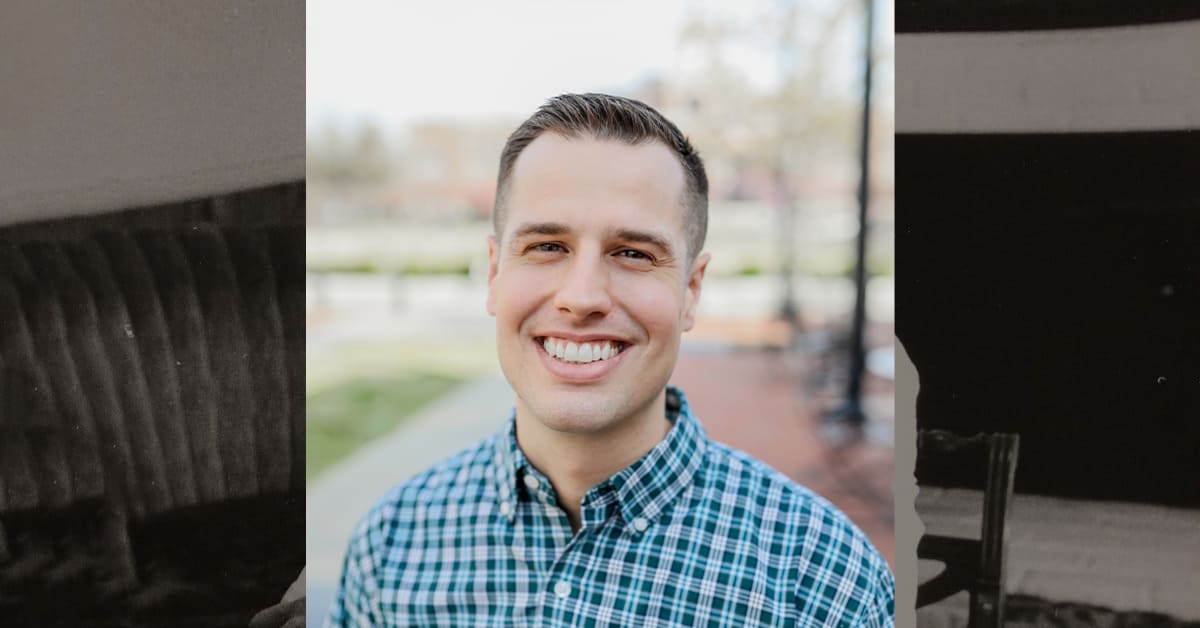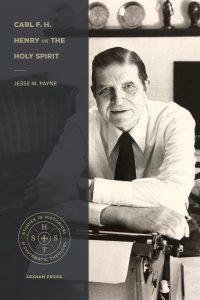
This week we are highlighting five new volumes in the Studies in Historical and Systematic Theology (SHST) series recently published in July. Today we interview Jesse Payne about his new book Carl F. H. Henry on the Holy Spirit.
Lexham Press: What sparked your interest in Carl F. H. Henry and his thought on the Spirit?
Jesse Payne: I found Henry early in my seminary career. I remember being interested in his story as a journalist-turned-theologian and impressed by his immense imprint on American evangelicalism. Many theologians and pastors that I respect cited Henry as a major influence, so I figured I needed to read him for myself.
It wasn’t until the early stages of my doctoral studies that my interests narrowed to Henry’s pneumatology. I originally planned to study the Puritans, but Henry wouldn’t let go. As I continued to read primary and secondary sources, I realized there was some distance between what I was reading about Henry’s theology and what I was actually encountering in Henry’s theology. Specifically, I couldn’t square certain evaluations of his pneumatology and the overall thrust of his theology with what I was seeing across the spectrum of his work. That launched me down the road that led to this book.
LP: In what ways was the Spirit important for Henry’s theology and writing?
Payne: My argument is essentially that Henry wouldn’t be Henry without his dependence upon pneumatology. In other words, pneumatology served as an aquifer that gave vitality to three theological topics for which he is remembered: Scripture, ecclesiology, and ethics. While most people don’t think of him as a theologian interested much in the Holy Spirit, his work is consistently anchored in pneumatological reflection.
The Spirit was also important to Henry on a personal level. Through unpublished correspondence, poetry, and other items, I uphold Henry as a model of the “pneumatological life”––a life lived by the power of the Spirit and bearing the fruit of the Spirit. The Spirit was a dynamic reality for Henry, and I wanted to bring that aspect of his life into color.
LP: What contribution do you hope to make with this book, and what do you hope readers take away from it?
Payne: I’m certainly not trying to reframe Henry as primarily a theologian of the Spirit. Nor is this a book focused on the finer points of pneumatology (I lean more toward the historical theology aspect of the SHST series). When I point people to the best resources on the Holy Spirit, I don’t begin with Henry. There are better places to start.
However, I am attempting to correct certain impressions of Henry’s theology (and the broader conservative evangelicalism he helped shape) that have gone unchallenged. I’m also using Henry as a lens through which to better understand other movements in American evangelicalism: neo-evangelicalism, the charismatic movement, the Jesus People, and even conversations regarding spiritual formation and the use of the supernatural gifts today.
Most importantly, I want readers to wrestle with questions Henry himself posed: Are we willing to yield to the power of the Spirit? Or do we only want to get along as we always have? Are our lives growing in conformity to the fruit of the Spirit? Are we hungry for spiritual renewal? Do we want to see our homes and churches and neighborhoods and the nations transformed by the gospel of Jesus Christ? My prayer is that readers would rely upon the Spirit in greater measure as a result of reading this book.
LP: How is Carl F. H. Henry relevant for today?
Payne: Henry had a knack for anticipating theological issues before they went mainstream. One reads Henry and asks, “How could he see this coming?” From pressing cultural issues to present-day theological flash points, Henry addressed so many of them over half a century ago. We have a treasure trove of insight in Henry’s catalog. It’s a real investment to work through it all (don’t begin with volume I of God, Revelation and Authority!), but the dividends are worthwhile.
Not only that, but he approached the task of theology with a sharp mind and a gentle heart. His work is dense and gets burdened by conversations unique to his historical moment, but his devotional impulse still comes through. He wasn’t beholden to any faction or camp. He never pleased everyone, and never attempted to. Instead, he was fully committed to contending for the faith with a commanding intellect and a cheerful spirit (even when his optimism waned in later years). He wasn’t perfect. But if more men and women take up Henry’s vision, evangelicalism will be better for it.
Carl F. H. Henry on the Holy Spirit
None doubt the influence of Carl F. H. Henry, the “theological architect” of contemporary evangelicalism. Through his prolific writing and editorial role for Christianity Today, Henry is known for addressing contemporary theology, individual and social ethics, and cultural criticism. But he has been critiqued for an underdeveloped pneumatology.
In Carl F. H. Henry on the Holy Spirit, Jesse M. Payne argues that Henry cannot truly be understood apart from his mature pneumatology.
David S. Dockery, Distinguished Professor of Theology, Southwestern Baptist Theological Seminary, says that Payne shows that “Henry’s thought was thoroughly dependent upon and inconceivable apart from the Holy Spirit” and “fills an important role in our interpretation and understanding of this evangelical giant.”








